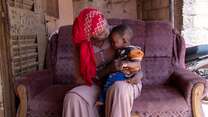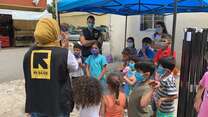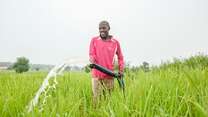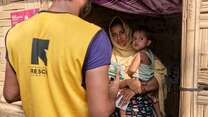In partnership with the IKEA Foundation, the International Rescue Committee (IRC) launched Refugees in East Africa: Boosting Urban Innovations for Livelihoods Development (Re:Build) in 2021. The initiative targets 20,000 refugees and host community members to help them sustainably reach economic self-reliance and social cohesion.
From 2022-2023, a three-armed randomized controlled trial (RCT) tested the effectiveness of mentorship on economic well-being and social cohesion on 1,570 of the Re:Build clients. All clients received a cash grant to start or improve a small business, i.e., a micro-enterprise. The program paired one-third of the youth with experienced entrepreneurs who served as business mentors. Another third received business mentorship and engaged in perspective-sharing exercises to build trust and social cohesion.
The Best Use of Resources (BUR) team measured the cost-effectiveness of improved economic outcomes among the treatment arms evaluated through the RCT. The cash-only treatment costs €731 per client, while mentorship treatment arms cost €1,133. Most expenses went to program supplies and activities for all treatment arms. In contrast, mentee support costs drove additional costs required for the mentorship treatment arms, which covered transport and mentor stipends. Of the total €1,623,629 spent on the project, 10% of the project costs went to HQ and internal cost recovery.
Impact evaluation results for the randomized controlled trial will be available in May of 2024, at which time we will update this brief to complete the cost-effectiveness analysis results.
Report



